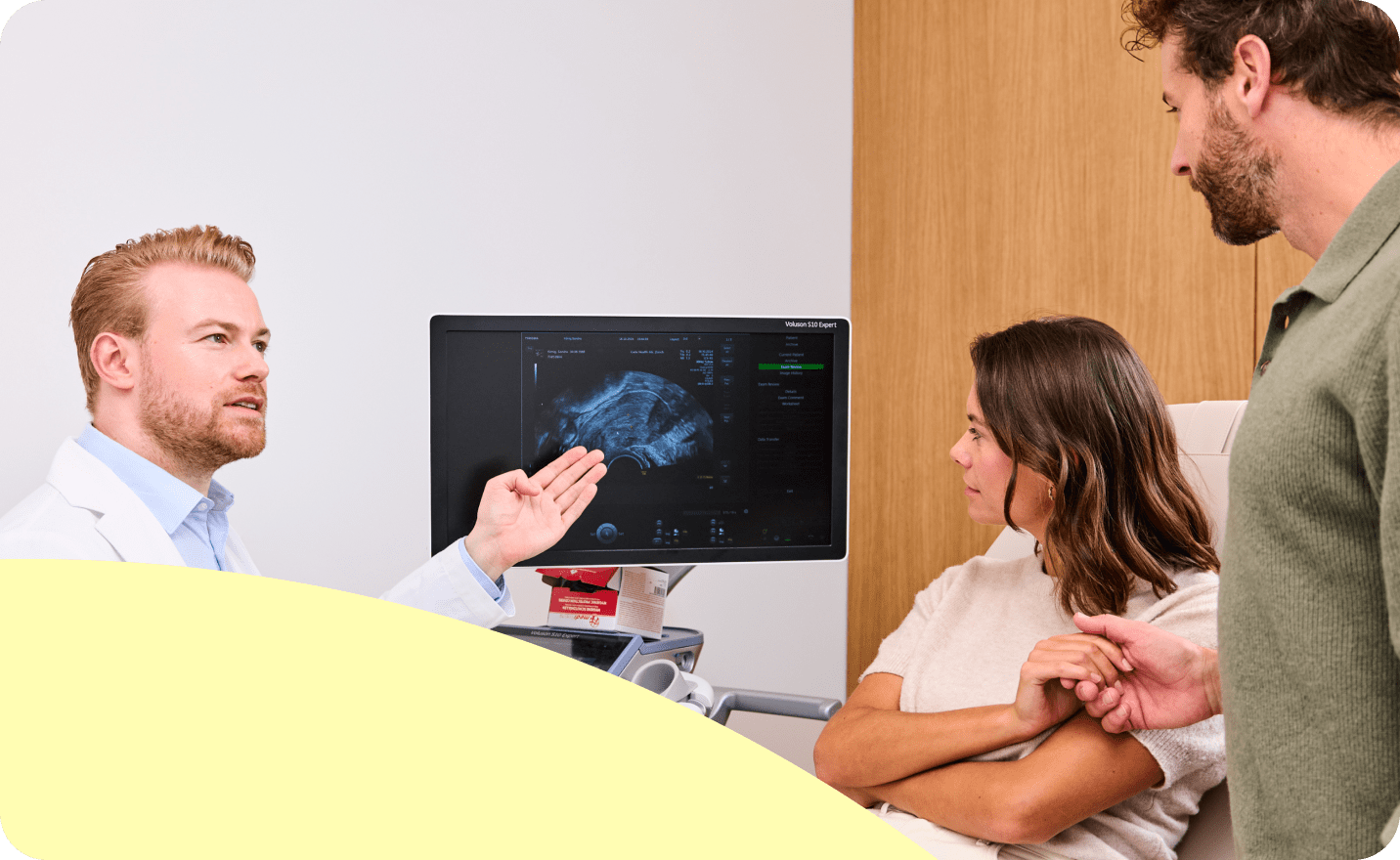Is polycystic ovary syndrome (PCOS) affecting your fertility or that of someone you love? Learn how to manage it.
Is polycystic ovary syndrome (PCOS) affecting your fertility? Women with PCOS can get pregnant, but managing the syndrome is key. Find out more in this article on ways to get pregnant when managing PCOS.
Introduction
A diagnosis of polycystic ovary syndrome, also known as PCOS, may leave you feeling confused about the syndrome and somewhat fearful for your chances of getting pregnant.
While you may encounter fertility complications, not all women must be medicated. Instead, many doctors will simply advise making changes in lifestyle, such as weight loss, exercise, and psychosocial therapy, to improve the condition and increase fertility.
If you learn about the syndrome, identify the symptoms you’re experiencing and how it affects your menstrual cycle, and discuss your options with a specialist multidisciplinary team, you may still be able to conceive and have a healthy pregnancy.
What is PCOS?
PCOS is the most common hormonal (endocrine) syndrome in women of reproductive age, with some studies suggesting that 6-20% of this age group are affected by the condition. Reproductive hormonal imbalances principally cause PCOS. In particular, luteinizing hormone (LH) is expressed in excess. In contrast, follicle stimulating hormone (FSH) is not released enough, which is tightly controlled by the communication between the brain and ovaries, known as the hypothalamus-pituitary-ovarian axis.
These imbalances can cause chronic anovulation – when the ovaries do not release a mature egg (or oocyte) during a menstrual cycle causing missed or irregular periods – and therefore decrease the chance of egg fertilisation and pregnancy. As well as anovulation, women may show signs of excessive ovarian activity in the form of cysts (polycystic ovaries – seen on an ultrasound) and hyperandrogenism (too many androgen hormones). Your fertility specialist will confirm a diagnosis of PCOS if you show two out of three of these signs.
PCOS doesn’t just affect the reproductive system, it can also have metabolic (insulin resistance, impaired glucose tolerance, type 2 diabetes mellitus, adverse cardiovascular risk) and psychological features (increased anxiety, depression and worsened quality of life). Therefore, getting an early diagnosis can be key for managing the syndrome and preventing these symptoms from worsening.
What causes PCOS?
While the specific cause of PCOS is still unknown, it is probably due to a combination of factors. Scientists have long found that there can be various hereditary and environmental factors that can cause the condition.
Strong evidence indicates that high levels of insulin due to insulin resistance, obesity, high levels of multiple forms of androgens, low-grade inflammation, and hereditary factors can all influence the development and consequential complications of the condition.
PCOS symptoms
It is unsurprising that women with PCOS will predominantly have problems with their menstrual cycle, which is often the first reported symptom. However, all women experience different symptoms at different intensities, and age, ethnicity, and general health can impact the symptoms.
Symptoms of PCOS include
- Irregular menstrual cycles – either missed periods (amenorrhoea) or periods that last longer than average
- Heavy periods
- Unwanted hair growth (known as hirsutism), specifically excessive facial and body hair
- Weight gain
- Acne
- Male-patterned baldness
- Fertility problems
- Pelvic pain
- Mood changes
- Sleep problems
- Depression and anxiety
You may not experience all the symptoms listed above. However, keeping a diary and monitoring the frequency and intensity of symptoms over time, especially during your menstrual cycle, can provide essential information about how you and your fertility specialist can manage the condition.
Complications arising from the condition
If the syndrome goes undiagnosed or progresses, you may experience further complications. By knowing what complications may arise from the condition, you can find a realistic approach to dealing with it.
Some complications of PCOS are
- Infertility—women with PCOS are 15 times more likely to experience infertility than women without the condition and a third more likely to require medicated treatment.
- Gestational diabetes or pregnancy-induced high blood pressure
- Miscarriage or premature birth
- Metabolic disease—women with PCOS have a higher risk of experiencing high blood pressure, irregular blood sugar levels, and higher cholesterol or triglyceride levels, which can significantly increase the risk of cardiovascular disease
- Type 2 diabetes mellitus
- Obesity—obesity is both a complication of PCOS and major risk factor for PCOS, as women with PCOS have much higher levels of androgens compared to lean women, consequently impacting fertility. It can also negatively affect ovulation induction therapy outcomes.
- Sleep disturbances and obstructive sleep apnea
- Non-alcoholic fatty liver disease—an accumulation of fatty acids in liver cells that can progress to fibrosis, cirrhosis, and liver cancer.
- Psychological features—depression, anxiety, eating disorders, low self-esteem, negative body image
- Endometrial cancer
Ask your fertility specialist for more detailed information.
When to see your doctor?
If you are experiencing any of the symptoms above, specifically irregular periods, amenorrhea, and infertility, and have yet to have PCOS confirmed, then make an appointment with your gynaecologist to discuss your reproductive health.
The specialist will conduct the necessary tests, which will likely consist of a pelvic examination, lab tests to look at hormone levels, and ultrasound imaging to look at the ovaries and thickness of the uterine lining. Then, they will share the final diagnosis after ruling out any other causes of anovulation, irregular menstrual cycles, and excessive androgen levels.
What is the best fertility treatment for PCOS?
Unfortunately, there is currently no specific cure for the syndrome, mainly due to the complexity of the condition and the unknown mechanisms that trigger it. Early diagnosis and correct management are essential to help prevent symptoms from manifesting into severe complications and to optimise a woman’s health.
The overall goals of therapy, whether it be lifestyle or medication, for women with PCOS are to improve symptoms caused by hyperandrogenism, manage metabolic abnormalities by reducing risks of diabetes and cardiovascular disease, plan and obtain a safe pregnancy by improving the menstrual cycle, and generally improve the well-being of the woman not just for the immediate future but for the long term.
To do so, ideally, you should be followed by a multidisciplinary team, who will initially start by addressing lifestyle interventions and only, if necessary, develop strategies to use medicated fertility drugs to help improve the symptoms of PCOS and increase the chances of conceiving.
Lifestyle treatment: How can you get pregnant naturally with PCOS?
Promisingly, lifestyle interventions are the first-line treatment options – diet, exercise, and behavioural or psychotherapy – which can significantly improve anovulation, fertility and PCOS symptoms. They are also cost-effective, easy to implement, and accessible to all. As many women with PCOS are also obese, weight loss and diet are the first points of call.
Weight loss: Obesity can significantly impact a woman’s chance of naturally getting pregnant, increase the risk of miscarriage, and have long-term effects on the health of the mother and child. During pregnancy, obese women may also experience gestational diabetes, hypertension, and problems during delivery; all these are further increased in women with insulin resistance and PCOS. Therefore, weight loss in women with PCOS should
- Be encouraged in women with a BMI > 25 kg/m2
- Aim to range between 5-10% of weight loss, which can have clinical benefits that help improve psychological, reproductive, and metabolic features.
- Have small, achievable, realistic goals for her current life setting by considering her general health, other illnesses, mobility, and intolerances.
- Be a combination of diet and exercise (see below)
Diet: Even for women who are not obese, following a healthy diet can help synch your cycle and optimise your health and fertility. A range of dietary strategies can be used, as long as they are safe, have the right amount of nutritional benefit, and can be sustained long term (to prevent weight gain). Fad diets are discouraged due to the risk of rapid weight gain when not following the diet.
Ideally, a healthy diet for weight loss should
- Follow a high-fibre diet rich in whole grains, cereals, fruit and vegetables.
- Eat essential fatty acids.
- Reduce carbohydrate intake, which can reduce insulin levels and improve weight balance.
- Moderate protein intake (eggs, nuts, dairy, meat and seafood)
- Reduce calories moderately by 500-1000 kcal/day, but undereating is discouraged.
- Having healthy gut bacteria can maintain a healthy weight and regulate metabolism. Women with PCOS should try eating foods high in probiotics (yoghurts, kefir) to help control a healthy gut environment.
- Simply reduce sugary drinks consumption, portion sizes, and highly processed foods that dramatically affect body weight.
Any dietary strategy should be discussed with your healthcare provider, ideally a specialised reproductive health nutritionist.
Exercise: Even without weight loss, exercise can improve metabolic risk factors linked to PCOS (hypertension, insulin resistance, and high blood glucose levels). Exercise can improve body composition, increase insulin sensitivity, reduce inflammation, decrease the risk of heart disease and improve mood. The best approach is to combine exercise and a healthy diet.
If you have PCOS, some of the best exercise strategies include
- Moderate aerobic exercise—intensity between 50 and 80% of maximum oxygen consumption or 60 to 90% maximal heart rate—which can reduce BMI.
- Resistance training for 1 hour per day three times per week has been shown to improve many features of PCOS symptoms.
- Moderately exercising three to five times per week, but be realistic if this seems too much, especially at the beginning.
- Choosing exercises that are good for you and start gently. Try yoga or pilates for mind–body balance, gentle running or walking.
Before exercising, the fitness programme should tailored to a woman’s BMI and health status. The intensity, type and frequency should be discussed with the doctor and a personal trainer.
Supplements: Some women will be advised to take vitamin supplements to help manage PCOS symptoms. Generally, ensuring a correct balance of vitamins A, B group, D, and E and mineral supplements, such as calcium, selenium, magnesium, and zinc, is good for all women.
Psychosocial therapy: Treatment of psychological and psychiatric features (anxiety, depression, low self-esteem) through counselling and therapy should also be a priority.
Improving a woman’s mental well-being and state of mind can have marked effects on the body, consequently impacting the success of additional lifestyle changes such as exercise and diet. Psychologists specialising in infertility and women’s health can offer education and psychosocial counselling.
Medical treatment: What might your doctor prescribe?
Suppose all lifestyle interventions have been tried and tested, and you remain unable to get pregnant. In that case, a doctor may prescribe fertility medications, which are usually reserved for women with a BMI lower than 35 kg/m2 (or 30 kg/m2 if you are younger than 37 years old).
The main aim of medicated interventions for women with PCOS is to support the growth and induce regular ovulation of a mature egg that can be fertilised naturally or through intervention, such as intrauterine insemination (IUI) or in vitro fertilisation (IVF).
Caution must be made not to induce ovarian hyperstimulation syndrome, which can increase multiple pregnancies and rates of perinatal abnormalities or death.
Bariatric surgery: For women who remain overweight (BMI >35 kg/m2) despite trying all available lifestyle interventions, doctors may offer bariatric surgery (surgery to reduce the size of the stomach, to induce weight loss), which can influence fertility, improve hirsutism, hormonal changes, and insulin resistance. Women must be informed of the risks of having invasive surgery. It is recommended that these women are closely monitored after surgery, and pregnancy should be avoided during periods of dramatic weight loss and up to 6-12 months post-surgery.
Side effects: not absorbing nutrients efficiently, infection, bleeding from the surgical site.
Letrozole is an aromatase inhibitor and the first-line treatment method for drug-induced ovulation, as it has a high ovulation rate, high birth rate, fewer side effects and less chance of multiple pregnancies compared with other ovulation-inducing drugs. Although rare and in low numbers, some congenital abnormalities or birth defects have been reported with letrozole. These are also registered with other ovulatory induction drugs, and your doctor will discuss any risk factors before prescribing a drug. As it is the first-line treatment, it has also been recommended in clomiphene citrate (CC) resistant women as a second-line treatment.
Side effects: gastrointestinal issues, hot flushes, headache, and back pain.
Clomiphene citrate (CC): Also known as Clomid, CC is an anti-oestrogen, non-steroidal therapy that, through blocking specific receptors and changing hormonal levels, encourages follicular development of the egg to maturity. CC was the first-line treatment option for anovulation in PCOS women for many years. Some countries still follow these guidelines, but it has been reported to have an 11% risk of multiple pregnancies; therefore, close monitoring of follicular development and ovulation using ultrasound should be followed. Your doctor will usually start you on a low dose and increase it if there are no signs of response. Six cycles of treatment are usually the standard, as approximately 75% of pregnancies that occurred using CC did so in the first three months, with a few within six months.
Side effects: visual disturbances, hot flushes, breast tenderness, nausea, and dizziness.
Metformin is a preferred treatment option for type 2 diabetes. As it reduces serum insulin levels, it has also been suggested as an option to control insulin levels and support weight loss in women with PCOS. But research is a little conflicting on its effectiveness as monotherapy in PCOS, so it is often used as a combination therapy with either CC or lifestyle interventions.
Side effects: gastrointestinal problems but generally on its own is well tolerated.
Gonadotropin therapy is preferably used as a second-line treatment in women with PCOS who have undergone CC therapy and are still anovulatory and infertile. Gonadotropin therapy aims to restore LH and FSH hormone levels and human chorionic gonadotropin (hCG). Dosage should start low to prevent overstimulation and multiple pregnancies, and doctors will have set ways of increasing the dosage and the amount of days a dose is maintained. It is challenging to find the right balance, especially in obese and insulin-resistant women, and should be done by specialists in reproductive health. An ultrasound will be performed to check follicular development and size, and a doctor will assess the dose.
One study found that first-line treatment with CC, followed by gonadotropin therapy, resulted in a live birth rate between 75-85%. However, other interventions such as IVF can be explored if a pregnancy has not occurred after 6 ovulatory cycles in women <25 years or 12 cycles in women >25 years old.
Side effects: multiple side effects have been reported, such as headache, gastrointestinal problems, nausea and vomiting etc.
Laparoscopic ovarian drilling (diathermy) is not a widely used and should only be considered when all the above options have failed. Through a surgical procedure called laparoscopy—where a surgeon makes small incisions in the abdomen to access the ovaries under general anaesthesia—one or both ovaries undergo electrocautery (diathermy) or laser to help stimulate ovulation. It can help restore regular ovarian activity and regulate hormonal levels. However, according to one randomised controlled trial, women receiving this therapy generally take longer to get pregnant, and half of the cases required additional therapy, such as CC or gonadotropin therapy.
In vitro fertilisation: IVF treatments tend to be the last option for infertility for PCOS, and there are limited recommendations on the best method for these women. The ovaries require stimulation for the doctor to retrieve an egg that they can fertilise and develop before transferring the fertilised egg back into the woman. Therefore, the risk for PCOS women is overstimulation of follicles. The gonadotropin-releasing hormone antagonist method is favoured to reduce the risk of overstimulation. Your fertility doctor will cover all the aspects of IVF before starting therapy.
Takeaway
Despite infertility being a common complication for women with PCOS, you can increase your chances of a healthy and full pregnancy by adopting specific healthy lifestyle changes tailored to your life, health status and expectations.
If infertility persists, an interdisciplinary team of doctors and healthcare professionals specialising in reproductive health can offer medical advice and guidance to help improve the condition and obtain a healthy pregnancy.
Cada has a dedicated and compassionate team to assist you in your fertility journey. Reserve your spot for a personalised consultation today to realise your dreams of starting a family.








